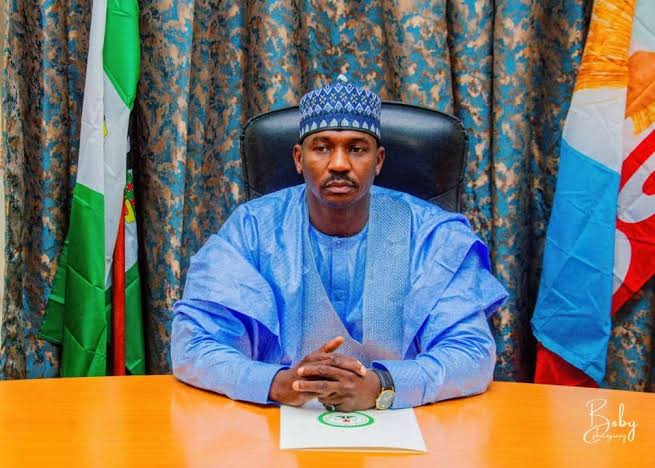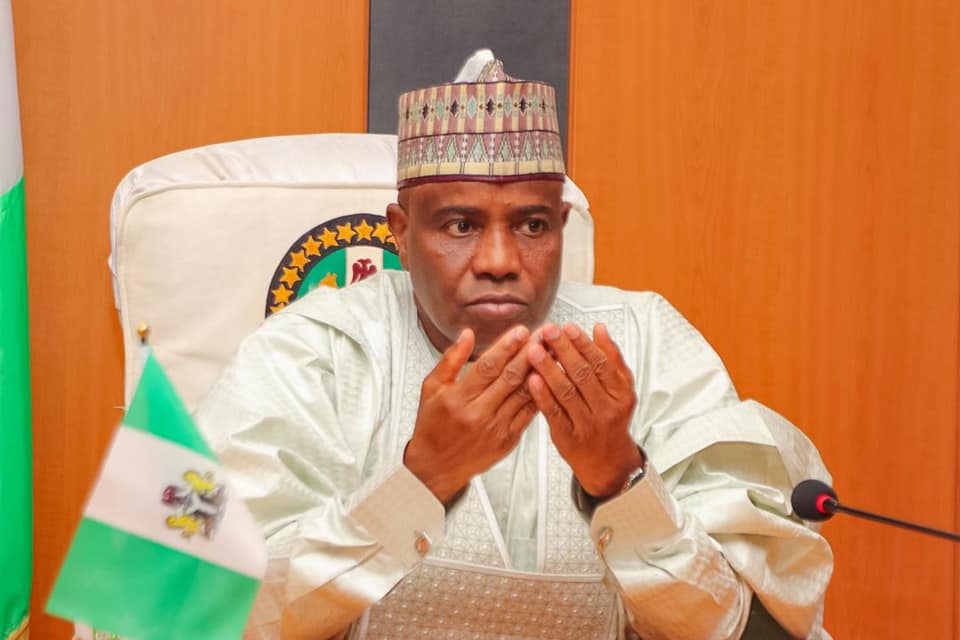For its compelling 2025 governance trajectory, the Sokoto State Government set sail with a princely ₦526.88 billion budget. But nine months into the budget year, it became imperative that critical adjustments must come into play to accommodate evolving dynamics and new realities on the ground.
Without much ado and flowing from bold, meticulous fiscal calculations, the necessary adjustment propositions leading to the reallocation of ₦38.81billion to boost budget performance were put forward and swiftly approved by State Executive Council, awaiting the nod of the state parliament for implementation.
As it were, in consonance with this nimble governance footing, the Sokoto State Government, on Tuesday, September 9 2025, approved the reallocation of ₦38.81 billion from underutilised areas to critical sectors, aimed at improving implementation and addressing emerging priorities in various sectors.
The Commissioner for Budget and Economic Development, Dr. Abubakar Zayanna, while briefing journalists shortly after the State Executive Council meeting, explained the adjustment was necessary to ensure a more “realistic and intentional budgeting system” that aligns with public financial management provisions.
Hon. Zayanna noted the approval of the amendment does not alter the ₦526.88 billion budget size earlier passed for 2025. His words, “All we did was move funds from one code to another. We reviewed non-discretionary capital receipts that were unlikely to materialise, removed their corresponding expenditure lines, and increased allocations in areas where revenues over-performed. This will help us achieve 70-80 per cent budget performance by year-end.”
The Honourable Commissioner further clarified the adjustment will ensure that every naira in the budget works for the state within the next few months, avoiding a situation where funds remain tied to dormant projects while urgent priorities suffer. The amended budget proposal will now be transmitted to the State House of Assembly for legislative approval, after which it will become a legal instrument for implementation.
For further needful clarity, following SECs approval of the 2025 budget amendment, Dr. Zayanna stated that the amendment was geared towards improving implementation and addressing emerging priorities without increasing the overall budget size. Another significant dimension to the 2025 budget tweak is the confident assurance by Zayanna that Sokoto State is likely to achieve 70-80 percent budget performance by the end of the 2025 fiscal year.
These carefully weighted adjustments speak to close budget performance monitoring which has enabled an alert Dr. Zayanna, in close concert with Governor Aliyu to identify crucial gaps and proactively take imperative administrative measures to ensure the state maintains its human and infrastructural development trajectory.
Before delving deeper into this circumspect budgetary juggling, it will be germane to note that Governor Ahmed Aliyu stands out for his administration’s fiscal discipline which has significantly and seamlessly aided the execution numerous developmental projects without resorting to loans as well as maintaining a debt-free status with contractors. This circumspect approach ensures long-term sustainability and reflects a governance model rooted in accountability and financial responsibility.
This pathway is also unusual in a socio-political milieu where many states grapple with unsustainable debt and yet indulge in cavalier borrowing spree. It is worth noting here that any borrowing done by the Sokoto State Government predates the administration of Governor Aliyu who is boldly traveling a different path.
Barely 28 months in the saddle as the state’s chief executive, Governor Aliyu has stamped his authority in human and infrastructural development proceedings in the conservative North-Western enclave by deploying frugal, circumspect, empathetic and inclusive governance nous in administering the state – particularly in a time of multi-faceted challenges.
The new Sokoto State in the works is clearly driven by the sheer power of visioning that has birthed cutting-edge growth and governance development models firmly anchored by prudent Governor Aliyu. For Sokoto, it’s game on as its state chief executive powerfully recalibrates her development journey.
For context, Nigeria’s debt has surged significantly in recent quarters, climbing from N49.85 trillion before the 2023 general elections to N150 trillion currently. This sharp increase primarily reflects the impact of policy-induced Naira depreciation, aggressive government borrowing, and rising borrowing costs. Despite the related negative impact that has cascaded down to the subnational level, a few governors are nevertheless navigating with fiscal wisdom.
Ultimately, fiscal transparency and financial responsibility mean living within an entity’s means. Under the circumspect leadership of Governor Ahmed Aliyu, Sokoto State has been living within its means. The state has never borrowed a kobo.
It’s out in the public space: Sokoto State has been recognized as a leading example in fiscal transparency. In a recent assessment by the World Bank’s States Fiscal Transparency, Accountability, and Sustainability (SFTAS) programme, Sokoto ranked first in the country. This ranking was based on rigorous criteria, including the publication of fiscal documents, accessibility of budget information, and implementation of sound financial management practices.
The state operates a fully functional e-procurement platform. The platform is designed to enhance transparency in public procurement by publishing all procurement details, allowing for public feedback and ensuring fair competition. The platform aligns with international best practices and serves as a critical tool for minimizing corruption and inefficiencies in public resource management.
Under the SFTAS programme, Sokoto State has implemented key reforms to enhance fiscal transparency and accountability. These include: Publishing budget implementation reports and audited financial statements promptly; Adopting a citizen-friendly budgeting process to involve the public in financial planning and execution; and strengthening internal control mechanisms to ensure prudent resource management.
Governor Aliyu stands out for his administration’s fiscal discipline which has significantly enabled the execution of numerous developmental projects without resorting to loans as well as maintaining a debt-free status with contractors. This circumspect approach ensures long-term sustainability and reflects a governance model rooted in accountability and financial responsibility.
It could be recalled that Governor Aliyu assumed office with the enunciation of a 9-point smart agenda. These include – education, health, water, agriculture, security, youth empowerment, local government autonomy, religious affairs, and economy. These have guided the compelling impact his administration has wrought in Sokoto State, just 28 months in the saddle.
Governor Aliyu has simply prioritized unambiguous budgeting and economic planning as a strategy with which to refocus knowledge-driven, data-based governance across board in the Seat of the Caliphate. This new thinking which targets total elimination of ambiguity in governance smoothly dovetails into the administration’s nine-point smart agenda.
Not to be forgotten is that in alignment with this new trajectory, the state government is to develop a three-year, Medium-Term Sector Strategy, MTSS, for key social sectors. Consequently, Ministries, Departments, and Agencies (MDAs) have been tasked to design their budgets using a scientific and realistic approach for the good of the state.
The arrowhead of this new approach is of course Dr. Zayyana, who recently threw the challenge at a recent Training Workshop on the Development of Medium-Term Sector Strategy (MTSS) for 2026-2028 for Health, Education, Water, Sanitation and Hygiene (WASH) and Social Protection organized by his Ministry in collaboration with UNICEF.
Accurately gauging the future of Sokoto State, a subnational entity impatient for accelerated, progressive change, Dr. Zayyana stressed that MDAs’ budgets should be based on their programs and activities to align with the government’s nine-point smart agenda, noting that ambiguous budgets or those designed without proper planning are no longer acceptable. He correctly asserted that weak and ambitious planning always leads to failure.
Dr. Zayyana also highlighted the importance of program-based budgeting in achieving desired goals and emphasized the need for teamwork to move the state to greater heights. As he correctly explained, the budgetary adjustment was necessary to ensure a more “realistic and intentional budgeting system” that aligns with public financial management provisions.
Unquestionably, Sokoto State means business.
Gatekeepers News is not liable for opinions expressed in this article, they’re strictly the writer’s






